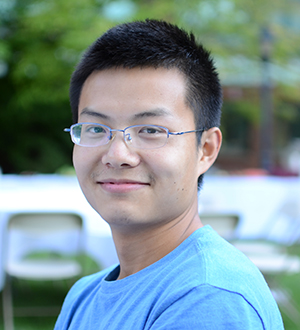 “During my time at Brown, I was very excited to be on a campus with such great diversity. I met many outstanding people who shaped my views and thoughts to the world dramatically,” says Liu.
“During my time at Brown, I was very excited to be on a campus with such great diversity. I met many outstanding people who shaped my views and thoughts to the world dramatically,” says Liu.
Liu’s doctoral research has focused on new quantum mechanical methods to predict material phase diagrams, new spectroscopies that can examine the quantum details of novel molecules, and new ways of computing, both classically and quantum mechanically, using small molecules.
“Over the past decade, advances in modern fabrication, spectroscopy, and simulation techniques have gotten us to the very fascinating point where one can now use quantum mechanics, which operates at the nanoscale and is commonly studied by physicists and chemists, to engineer and probe new materials and devices that operate on the macroscale,” said Brenda Rubenstein, Liu’s Ph.D. adviser and an assistant professor of chemistry at Brown. “Perhaps one of the best-known examples of this is the quest to design quantum computers. Quantum computers necessitate the design of materials and devices that enable long-lived quantum logic and ways to correct that logic when it begins to be corrupted. Quantum mechanics can also be used to create ways of imaging materials at resolutions never before imaginable via quantum optics. Moreover, quantum simulations can now be performed so quickly that the properties of materials can truly be predicted from the bottom (the atomic level) - up.
“This all said, by pursuing degrees in chemistry, physics, and engineering, Yuan has put himself in prime position to contribute to the rapidly increasing amount of quantum research at the interface of these three fields. While there are many chemical physicists that understand quantum mechanics at the level of atoms and molecules, Yuan's electrical engineering degree has given him a far more rare - and useful - perspective on what these atoms and molecules have to do to be made into practical electronic devices. In other words, he not only knows about electrons, but how to use them as well.”
Liu said, “I would say the most exciting thing about my research is how one is able to model the behaviors of electrons to such a great extent using pencil, paper and computers, and then forget all the details and simply try to ‘understand’ the physics behind it.”
He credits the Open Graduate program for giving him the broad interdisciplinary perspective among electrical engineering, physics, and chemistry, and prepared him to pursue related ideas in his future career.
“I think the reviewers of my job application valued my idea of combining quantum information science and chemistry, the two subjects that I pursued during my participation in the Open Grad program,” says Liu.
Using analytical and numerical tools, he also studies light-matter interaction, nonadiabatic couplings, and threshold effects in dipole- and quadrupole-bound electronic states in cold molecular anions. His other research contributions include designing noise models for anomalous heating in ion traps, which is one of the leading technologies for quantum computing.
“They are not trivial tasks; Electrons interact with each other, and you will be surprised by how complicated their behaviors can be depending on where they are, such as in atoms, molecules, or even solid-state materials,” says Liu.
“Yuan is one of the rare students with the skills, fortitude, and intellect to become an expert in three fields at once,” Rubenstein said. “This has undoubtedly given him a unique perspective that will put him on the path to being a world leader in quantum technologies.”
Liu is from Xianyang, China and completed his undergraduate education at Tsinghua University in Beijing, majoring in physics.